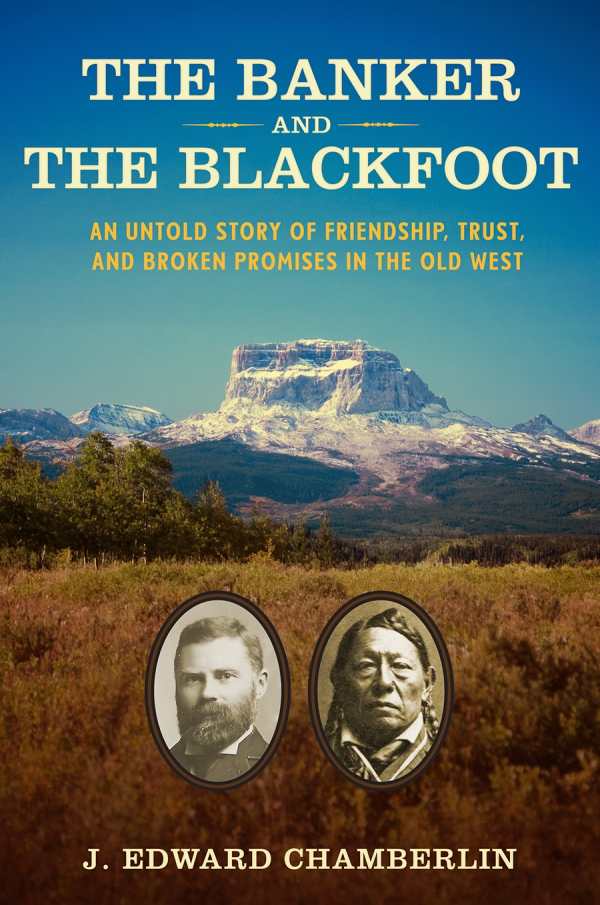The Banker and the Blackfoot
An Untold Story of Friendship, Trust, and Broken Promises in the Old West
The seemingly improbable friendship between Jack Cowdry, author J. Edward Chamberlin’s grandfather and a white rancher and banker, and Crop Eared Wolf, a warrior and Blackfoot chief, is recalled in the warm historical account, The Banker and the Blackfoot. Set during the late nineteenth and early twentieth centuries in southern Alberta, this family biography-meets-history reveals a friendship that endured despite broken treaties with the Blackfoot that devastated the First Peoples’ livelihood and heritage.
Cowdry and Crop Eared Wolf met in 1885, soon after Cowdry settled in Fort MacLeod, which was originally within the Blackfoot plains. They bonded over their love of horses and remained close friends until Crop Eared Wolf died in 1913. In addition to their story, Chamberlin provides an informative history of the Blackfoot and of western Canada during a time of unprecedented population growth, as farms and ranches filled previous Blackfoot hunting grounds.
The book is at its best when describing the role the Cowdry Brothers Bank played in the lives of small-town farmers and merchants and when discussing the tragedies endured by the Blackfoot, including the slaughter of the buffalo, smallpox and cholera epidemics, the 1876 Indian Act, and cultural genocide.
The text incorporates entertaining tales about Fort MacLeod notables like Harry Longabaugh, the notorious “Sundance Kid,” and Frank Dickens, a North West Mountain police officer and the son of Charles Dickens. Still, the connection between Jack Cowdry and Crop Eared Wolf remains its most memorable feature. The Banker and the Blackfoot is an entertaining and moving social history with lessons that are applicable in these divisive times.
Reviewed by
Karl Helicher
Disclosure: This article is not an endorsement, but a review. The publisher of this book provided free copies of the book to have their book reviewed by a professional reviewer. No fee was paid by the publisher for this review. Foreword Reviews only recommends books that we love. Foreword Magazine, Inc. is disclosing this in accordance with the Federal Trade Commission’s 16 CFR, Part 255.

